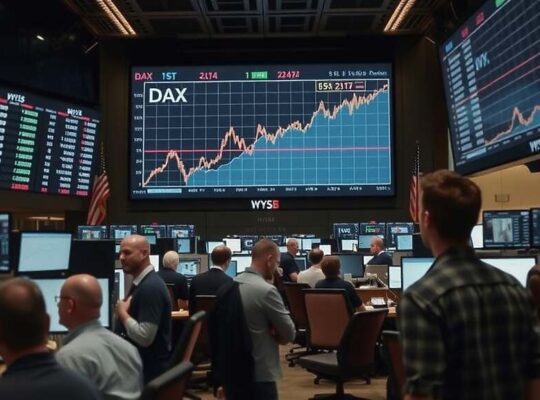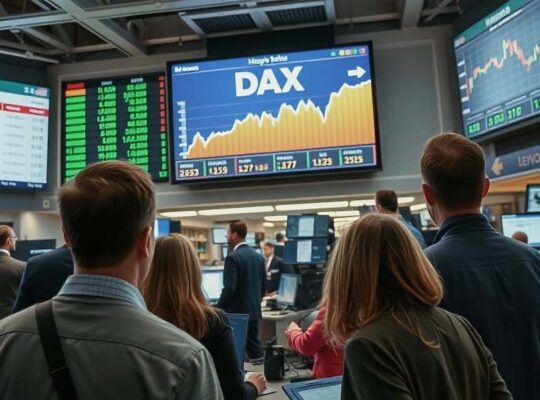The German stock market experienced a downturn Tuesday, with the benchmark DAX index opening lower and subsequently relinquishing much of Monday’s modest recovery. By mid-morning, the index stood around 24,190 points, representing a 0.8 percent decrease from the previous day’s close. While Fresenius, Volkswagen and Vonovia led the gains, Siemens Energy, Continental and Siemens dragged on performance.
This morning’s decline highlights a growing divergence between the German market and its Wall Street counterparts. According to Jochen Stanzl, Chief Market Analyst at CMC Markets, “After the hesitant recovery yesterday, the DAX is giving back almost all of its gains since Friday afternoon”. This sentiment is partially fueled by a cautionary warning issued by Michelin, which negatively impacted the Continental share price. This has sparked anxieties among investors who perceive a potential correlation between the struggles of the French tire manufacturer and its German competitor, suggesting broader concerns regarding the health of the automotive sector.
The DAX’s inability to sustain a push towards new record highs last week is now underscored by a prevailing sense of risk aversion among investors. While the S&P 500 remains approximately 1.5 percent above its Friday lows, the DAX is hovering just above its own, signaling a lack of robust underlying investor confidence. The overall trend raises questions about the resilience of the German economy and the potential impact of global economic headwinds.
Adding to the cautious atmosphere, the euro weakened slightly against the US dollar, trading at 1.1568, reflecting broader currency market pressures. Simultaneously, the price of Brent crude oil fell below $62.75, a 0.9 percent drop that further contributes to investor uncertainty. The confluence of these factors indicates a potentially challenging period ahead for the German stock market, requiring careful monitoring of both domestic and international economic developments.












